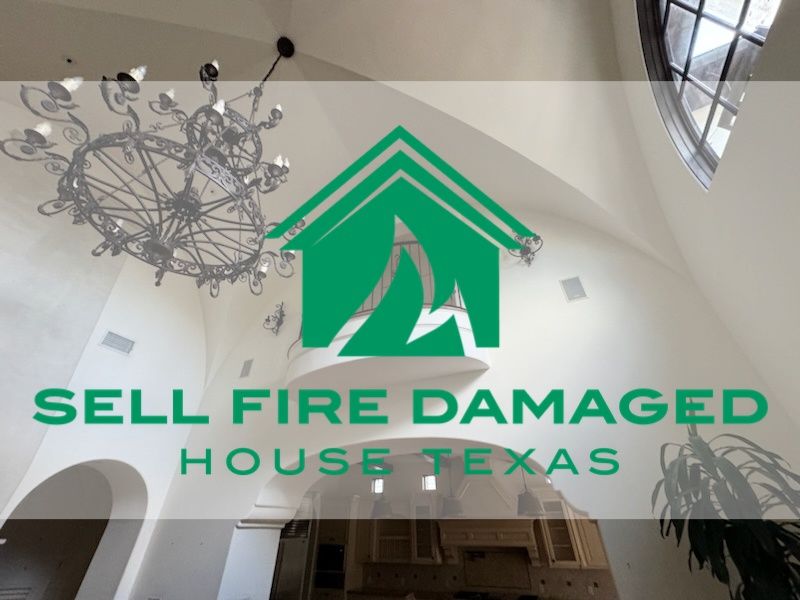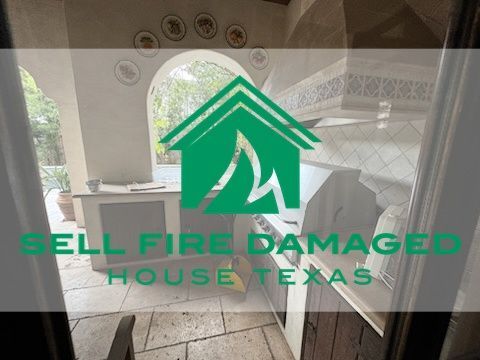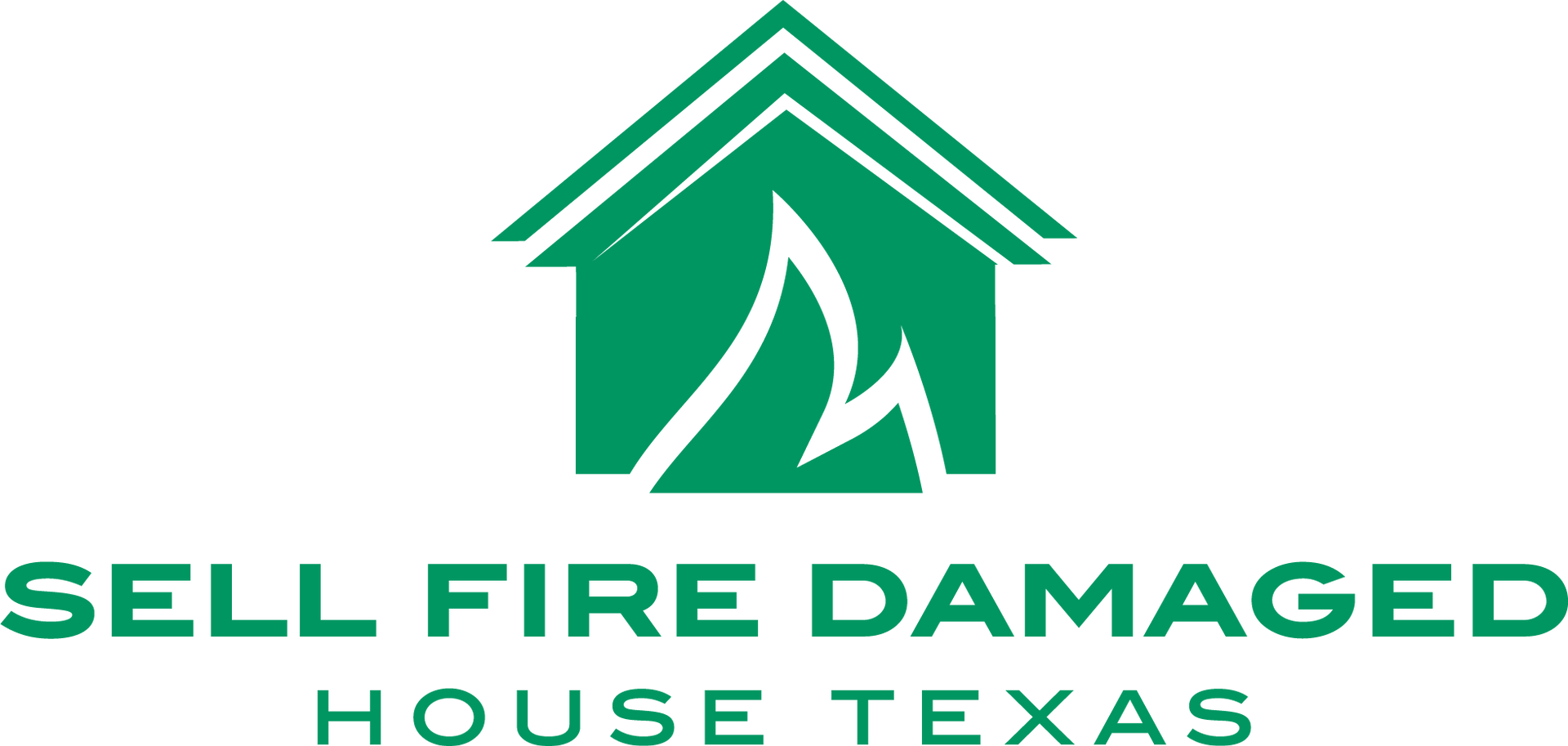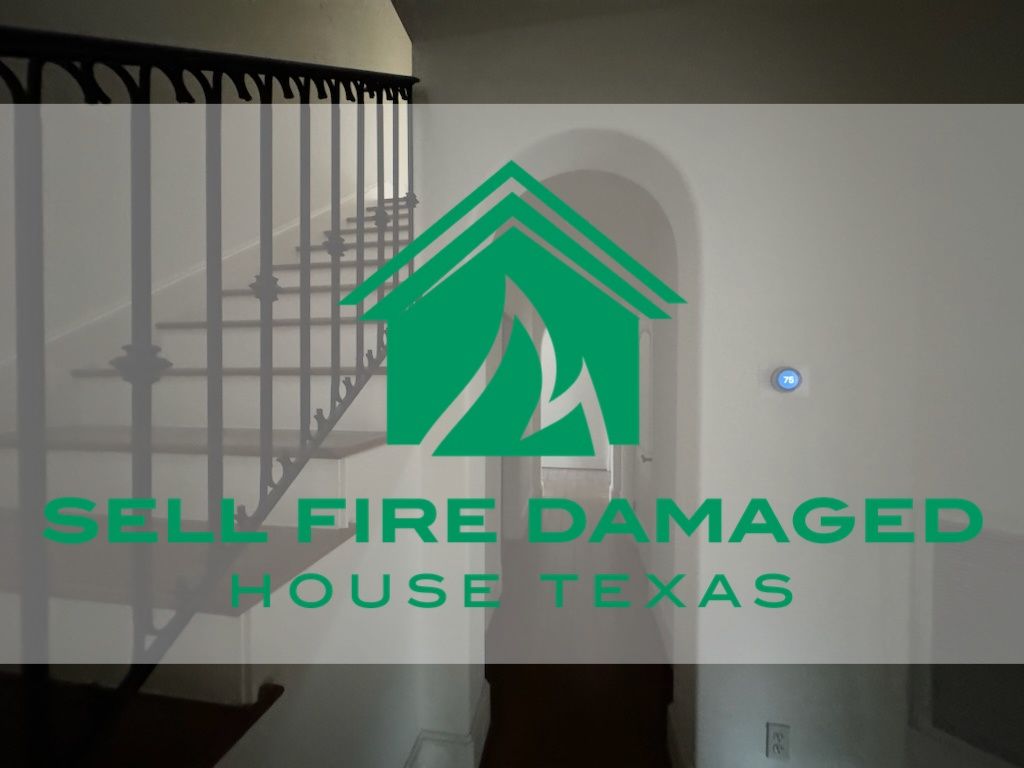How To Clean Up After A House Fire In Texas: Complete Guide
Published on July 28th, 2025
Mia Bennett
AUTHOR
Free Offer Form
After a fire in Texas, cleanup must follow strict safety protocols under state law (Texas Health and Safety Code § 341.011) and local regulations—like Austin's requirements for professional hazardous material disposal of fire debris. The process typically involves soot removal, smoke odor mitigation, and structural assessments, which can become costly and time-consuming due to Texas' specific building codes and insurance requirements. If you're facing overwhelming restoration costs or complex paperwork, you can sell the fire-damaged property as-is to us—we handle all the legal and logistical burdens, offering a fair cash price and closing on your timeline without requiring any repairs.
Not all house fires end in the total destruction of your homes and belongings.
However, regardless of the fire's severity, you can expect plenty of cleanup afterward. After all, you'll also need to deal with soot, water, and smoke damage.
Skipping even a single step can endanger the well-being of everyone in the house.
Cleaning up after fires can be overwhelming. So we've put together this guide to help.
Cleaning up After a Fire In Texas- Comprehensive Guide
The fire damage cleanup process can be hard. To help you not be too overwhelmed, we've put together a comprehensive guide to follow.
Initial Safety Measures Before Beginning the Cleanup
Have your property checked by the fire department first. Only enter to inspect the damage once they've said it's safe.
However, there are several things you should do before beginning the cleanup process:
- Open as many windows as possible to promote good ventilation. Firefighters may have also cut holes in the roof or walls to slow the fire's growth.
- Wear protective clothing like close-toed shoes, long-sleeved shirts and long pants, safety glasses, face masks, and work gloves.
- Ensure kids are kept away from the damage.
Equipment Needed for Effective Cleaning
Cleaning hidden damages and damaged surfaces can be an intensive and delicate process. You'll need the following supplies.
- Trisodium phosphate cleaner
- Smoke and soot cleaners of your choice
- Dry-cleaning sponge (preferably something specially designed to remove smoke damage)
- Cleaning rags
- Warm water
- A large sponge to absorb moisture
Steps to Follow in Cleaning up After a Fire
Once you've got everything ready, you can go into the practical steps to follow after a fire to make your home livable again.
Call the Insurance Company
Immediately call your insurance company and tell them what happened. Start a claim process as soon as possible.
You can even ask for an advance of funds for temporary housing and mitigating damages after a fire.
Throw Things Away
Some things that look perfectly fine may be more damaged than you realize.
As such, for the household's safety, below is a list of things to throw out after a fire:
- Electrical equipment - Don't use any electronics like small appliances and entertainment equipment until they've been checked for heat and water damage. If you're unsure about their condition, it's best to throw them away.
- Perishable food - Refrigerated and frozen foodstuffs should be disposed of if the electricity has been off for 4 hours or longer. A full freezer with ice crystals might survive up to 8 hours. However, if you smell anything odd from the refrigerator or see soot enter it, it's best to throw the food items away.
- Non-perishable food - Any food items that have been contaminated with smoke, heat, water, or firefighting chemicals should be thrown away. Excessive heat can spoil the food even if the cans aren't burned.
- Fabrics - Burned clothes containing smoke and soot have chemicals that will irritate your skin and respiratory system. Meanwhile, larger textiles like bedding, carpets, and drapes can absorb smells and chemicals. Because of their size, they may be too big to clean effectively.
- Furniture and mattresses - Similar to heavy fabrics, these can hold onto smells and chemicals that can be hard to completely eliminate. On top of that, furniture can be compromised by heat or flames. So, if you're unsure about their condition, you should throw them away.
- Cosmetics and toiletries - These items contain chemicals and minerals that can be affected by heat. Water and fire extinguisher dust have contaminants and toxins that can change the composition of cosmetics and toiletries. It's safer to buy new ones.
- Medicine - Heat, water, and smoke damage can affect medicine. On top of that, you might ingest dangerous chemicals by consuming them.
Clean the Interior
Walls and windows are prone to mildew after a house fire, so you'll need to tackle them first. It's best to clean the walls from the bottom and work your way up to prevent streaking.
If you have washable wallpaper, you can clean it the same way as painted walls — just make sure not to get the wall behind the paper wet to prevent mold and mildew. You can use commercial paste to reapply loose edges.
When you're done with the walls, clean the ceiling.
Keep an eye out for smoke damage. This can be hard to identify the farther they are from where the fire originated. Some physical signs of fire damage include:
- Discolored or yellowed paint
- Black dust or oily residue on surfaces
- A smoky smell
- Soot-streaked and blackened areas
If you're unsure if something has smoke damage, it's best to call professionals.
As for the windows, you can spray them with a garden hose (or a pressure washer if the soot is too thick). Once you've gotten the soot off, follow it up with a glass cleaner.
Next, clean your floors. You'll first want to deal with standing water from the firefighting efforts before removing all the dust and soot, preferably with a wet/dry shop vac.
Afterward, you can wash the floors. Note that if you can't get them as clean as you want or there are too many stains, it might be best to replace them.
Hardwood floors can usually be saved as long as they aren't charred or have burn marks. Use oil soap to clean them, then sand and refinish.
Clean the Exterior
Start from the roof and check all the places where soot can hide — like the gutters.
Use a power washer on your windows to remove ash, soot, and chemical fire retardants. Be ready to scrub some areas with detergent and water if needed.
A stiff brush with a water and borax solution can be used to remove surface damage for small damaged areas. Alternatively, a paint scraper might be better if firefighters used Class A foam to extinguish the fire.
Note down any scorched or melted roof shingles and house siding since you'll need to replace them.
Cleaning Specific Household Items (Glass, Metal, etc.)
If you've salvaged some items from your house, clean them immediately.
For instance, if you want to save the wooden frame of water-saturated upholstered furniture, you should strip the fabric and padding ASAP. Otherwise, mold and mildew might destroy the frame.
Glass can usually survive a fire and can be cleaned with vinegar and dish soap. Alternatively, you can soak the item in white vinegar and baking soda.
Meanwhile, metal might stain but will usually withstand fire damage. You can clean it with vinegar and dish soap, then lightly sand and paint it.
Using Specific Cleaning Agents – Vinegar, Dish Soap, Tri-Sodium Phosphate (TSP)
Vinegar, dishwashing soap, and TSP can make any cleaning procedure easier.
For example, to get the smoke odor out of clothes that can handle bleach, soak them in a solution of 4-6 teaspoons of TSP, 1 cup of bleach, and 1 gallon of warm water.
You can also use this solution on fabric furniture pieces.
If you don't want to use bleach, you can use a solution of warm water with detergent or white vinegar.
For other surfaces in your home (from the walls and floors to cabinets), you can use this solution:
- 2 tablespoons of dishwashing soap or laundry detergent
- 4 to 6 tablespoons of TSP
- 1 cup of chlorine bleach or household cleaner
- 1 gallon of water
Long-Term Smoke and Soot Removal
To remove soot and smoke, follow the right cleaning process according to what you're cleaning.
So, if you want to remove soot stains from clothes, don't wet it first. Instead, use a crevice attachment on a vacuum cleaner first to lift as much of the ash particles out.
Then, sprinkle baking soda, wait 15 minutes, then vacuum it off. Repeat the process until most of the stain is gone.
You can also tackle lingering smoke odor in an area with a bowlful of white vinegar or baking soda. Place this in the room to absorb any scents. However, this is only good for minimal smoke odor.
Dos and Don'ts of Post-Fire Cleanup
You might be trying to absorb everything through the shock of a fire. However, there are some dos and don'ts you'll need to know.
DO:
- Talk to your insurance agent
- Take photos to document the damage
- Discard everything affected by heat and smoke damage
- Mitigate damage
DON'T:
- Enter the building before the firefighters say it's safe
- Use appliances before they can be checked
- Turn water, gas, or electricity on unless your utility provider says it's safe
Health Implications and Mitigation In Texas

It's important to watch out for fragile building materials that are about to break and ash you might slip on. However, you should also be wary of inhaling smoke.
Potential Health Risks from Fire and Smoke Exposure
A house fire can pose health issues even after it's been put out. Some health problems include:
- Respiratory problems - Breathing issues from smoke inhalation are the top health problem to worry about. Smoke can travel through ducts and between rooms, and soot can settle in porous materials, which can cause long-term health issues.
- Chronic illnesses - If you have pre-existing conditions like diabetes or HIV, you're also more susceptible to aftereffects. Get checked by a doctor immediately after the fire to identify problems early.
- Eye and skin irritation - Your eyes and skin can be irritated by toxins and chemicals after a fire. You can also experience this while using furniture or clothes that weren't cleaned properly after the fire.
How to Improve Indoor Air Quality Post-Fire
Lingering smoke odors can negatively impact your health. Fortunately, you can weaken or remove smoke smells and minimize smoke damage from your home after a fire.
- Open doors and windows to let fresh air circulate. You can also set up fans in front of the windows facing outside to create makeshift exhaust fans.
- Clean surfaces.
- Steam clean if normal cleaning can't get the smokey smell out of your house.
- Swap out HVAC filters.
- Use activated charcoal.
- Add a new coat of paint.
Timeline for a Thorough Cleanup In Texas: Expectations vs. Reality
You might have imagined a timeline for your cleanup. Unfortunately, it most likely won't go as planned.
Factors Influencing the Cleanup Timeline
Cleaning up after a home fire will take longer than you'd expect.
Two of the most important factors that affect the cleanup timeline are fire damage and your emotional well-being.
After all, experiencing a property fire is very personal and can be very distressing. Remember to accept the process and focus on one step at a time.
Don't push yourself, and always take breaks when things get too overwhelming for you.
Stages of the Cleanup Process and Estimated Time Frames
There are three major stages to cleaning up once the firefighters give the go signal:
- Cleaning the interior
- Cleaning the exterior
- Cleaning items you've salvaged
As previously mentioned, the time it will take to clean the house depends on the damage and your well-being. Overall, cleaning can take weeks to months.
Professional Help in Post-Fire Cleanup In Texas
You're not alone after the fire.
You can enlist the help of friends and family and get funds through your insurance. On top of that, you should also consider hiring professionals who will do what you can't.
When to Consider Hiring Professionals
When considering the process of rebuilding, you may want to commission professionals. Especially so if you're unsure of how to clean something or you're having trouble cleaning it.
Advantages and Limitations of Professional Cleaning Services
Hiring professionals is a good idea since they have the experience and refined processes that can cater to your needs.
For instance, changing your HVAC filters might not be enough to get rid of the smoke particles circulating around your house. A professional cleaning service can easily tackle your HVAC systems and ductwork.
You might also need to contact a pro to extensively remove smoke odors and sanitize the property using chemical fog or ozone treatment.
One limitation of hiring pros is some of them might be fully booked unless they're emergency services. The cost of professional services is also something to consider.
Because of that, you can try to deal with what fire damage you can and leave the more extensive jobs to a restoration company.
For instance, you can clean the exterior walls and sweep solid debris yourself. But let the pros handle repairing structural damage and removing smoke residue between the attic and wall insulation.

Frequently Asked Questions
Dealing with fire damage can be very difficult. If you have more questions regarding the process, we've answered some below.
What Safety Measures Should I Consider During the Cleanup Process?
Before you begin cleaning, have the fire department check for fire damage along wall supports. Damaged wall supports can make it dangerous to enter the house.
Once you're given the go signal, wear protective clothing while cleaning. If possible, open doors and windows to increase air circulation.
Remember to take breaks if you start feeling overwhelmed. Don't be afraid to ask for help from other people as well.
How Long Does It Take to Remove the Smoke Smell?
There's no set timeline for post-fire restoration since a house fire can range from minor to major. As such, it can take weeks to even months to sort through and fix the fire and smoke damage.
Your timeline depends on factors like damage to your property and your emotional well-being.
How Can I Clean the Air After a Fire?
There are several ways to clean the air after a house fire.
- Open doors and windows
- Clean surfaces
- Change HVAC filters
- Use activated charcoal
If you still smell smoke despite your best efforts, it's best to call a restoration company for help.
What Are the Potential Health Risks from the Smell of Smoke?
Some potential health problems caused by the smoke smells include respiratory issues, eye and skin irritation, and worsening of chronic illnesses.
As such, you should minimize exposure to smoke and get yourself checked if you start feeling sick.
What Specific Cleanup Challenges Might I Encounter After a Fire?
One of the most predominant challenges you might encounter is dealing with the emotional impact of the fire.
Stress and worry will slow you down, and you'll need to accept that and focus on one task at a time.
Aside from that, you should also mitigate further damage to your house.
Dealing with an insurance agent is also something to face during cleanup. After all, the money you'll get from your insurance company can help you pay for restoration services.
Conclusion
When a fire occurs, it can be hard to control your emotions. However, there are things you should do to prevent fire and smoke damage from further destroying your home.
You'll need to contact an insurance representative to help fund your cleanup. On top of that, enlist the help of a restoration company to fix bigger things like electrical wiring.
However, you can also clean on your own using mild soap, vinegar, and TSP for interior surfaces like cabinets and walls.
Repairing fire and smoke damage can take a long time since experiencing a fire can affect you emotionally. Proceed slowly, and don't be afraid to ask for help.
Recap of the Importance and Process of Post-Fire Cleanup
Cleaning up after a house fire is important for post-fire safety. After all, it minimizes further damage from destroying your home.
On top of that, it lowers health problems associated with inhaling smoke.
Before cleaning your house after a fire, call your insurance agent and report what happened. Then, wait for the firefighters to announce that it's safe to go inside your house.
Sort through the wreckage and see what you can save. However, if they show signs of fire or smoke damage, it's best to throw them away.
Clean the interior of your house like the ceiling and floors, then move to the exterior. After all that, clean the items that you've salvaged.
Additional Resources for Recovery and Restoration after a Fire
You shouldn't be afraid to call for professionals if you need help restoring your house. After all, they're equipped with the proper training to deal with such situations.
If you don't want to fix your house, that's fine too. Some companies actually look for people selling fire-damaged homes for a fair price.
They'll take your property off your hands and repair all the fire and smoke damage themselves, so you won't have to worry about anything.

